Queen Mary University of London on Overleaf
Overview
The Faculty of Humanities and Social Sciences, the Faculty of Science and Engineering, and the Digital Environment Research Institute at the Queen Mary University of London is providing Overleaf Professional features for PhD students and researchers who would like to use a collaborative, online LaTeX editor for their projects. Overleaf Professional features include real-time track changes, unlimited collaborators, and full document history.
Overleaf is designed to make the process of writing, editing and producing your research papers and project reports much quicker for both you and your collaborators. Overleaf can also be linked to other services to best fit into your workflow.
Claim your Overleaf Professional upgrade by signing up (or signing in) below. You’ll need to link your account to your Queen Mary University of London single sign on. If you are an eligible user affiliated with the School of Electronic Engineering and Computer Science, you will be upgraded automatically.
As this is a third-party hosted service protected by single-factor authentication, you should be conscious of the sensitivity of the information you store here.
Overleaf users at Queen Mary University of London who are not affiliated with the School of Electronic Engineering and Computer Science are encouraged to also confirm their affiliation. This will show your interest in making Overleaf Professional subscriptions more widely available at Queen Mary University of London.
Join a community of over 2078 authors at Queen Mary University of London
Quick Start
Welcome to the quick start guide to Overleaf. We've put together some useful resources and links in the sections below, and if you have any questions about how to get started please let us know and we'll be happy to help!
For Students
Try out the Overleaf editor with built in tutorial
If you'd like to dive straight into the editor, simply click the button to create a new paper using our quick-start template. A short tutorial will walk you through the main features to quickly get you started.
Browse the Overleaf template gallery
You can find a selection of featured templates, or check out our full template gallery for more ideas and inspiration.
Take our free course to quickly master the LaTeX essentials
If you're new to LaTeX, we've put together a free online course to help you learn the basics. If you have never used LaTeX before, or if it has been a while and you would like a refresher, this is the place to start.
For Researchers
Find a journal template
Through our partnerships within the publishing community, we provide a selection of academic journal templates for articles and papers. These templates automatically format your manuscripts in the style required for submission to that journal.
Edit in Rich Text mode or directly in LaTeX
Overleaf provides an intuitive and easy-to-use manuscript editor (our rich text mode), which is especially useful if you or your co-authors aren't familiar with writing in LaTeX.
If you prefer to edit directly in LaTeX, you can! Overleaf provides a full collaborative online LaTeX editor you can switch to at any time.
Submitting your articles to journals, repositories and more
You can also submit your paper directly to a number of journals and other editorial and review services via the publish menu in the editor. Simply open the publish menu from any document and follow the appropriate 'Submit to ...' link.
For Teachers
Introducing Students to LaTeX
Overleaf has several on-demand webinars available that address a variety of beginner, intermediate, and advanced topics.
Help students understand LaTeX errors
Addressing errors as they happen helps ensure that your LaTeX project continues to compile and look the way it should.
Show your class how to turn on track changes for review
Overleaf offers an impressive collection of collaboration features, and your institutional subscription provides all users with access to the powerful track changes feature.
Featured LaTeX Templates
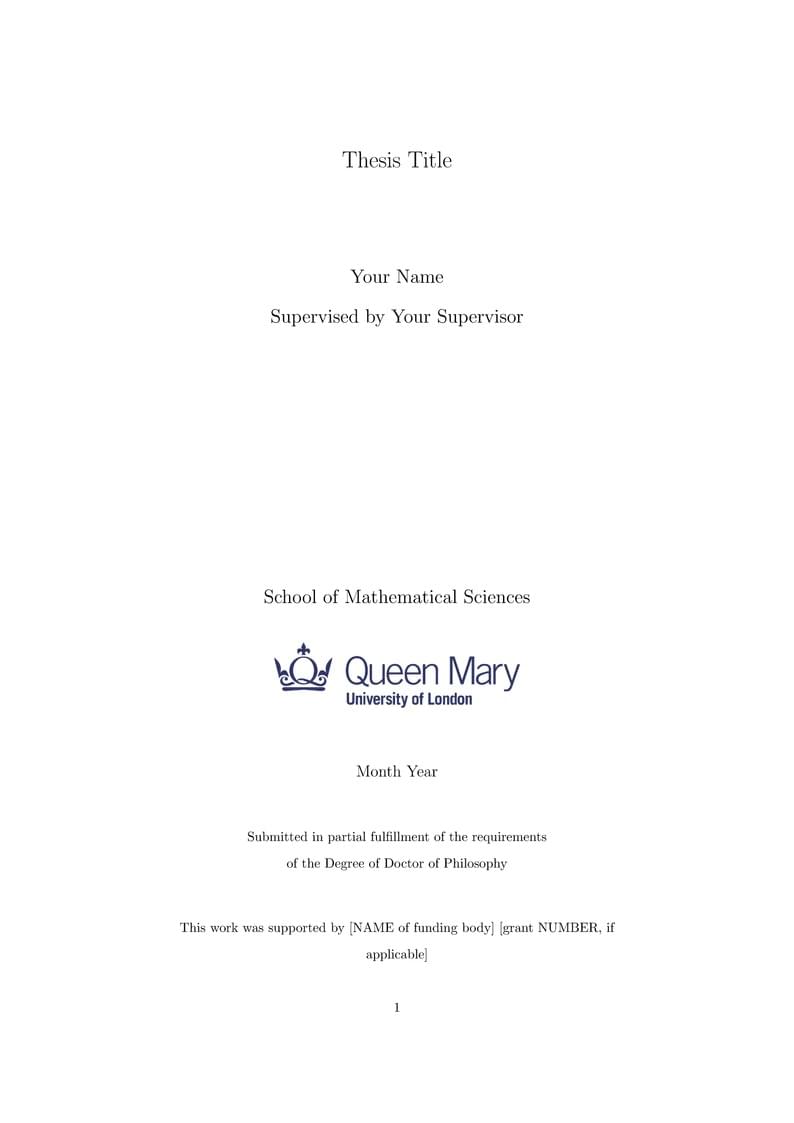
An official PhD/PGR thesis template for the School of Mathematical Sciences, Queen Mary University of London. Based on Thesis Presentation Notes updated November 2024, available from https://www.qmul.ac.uk/registry-services/research-degrees/research-student-information/thesis-submission--examination/
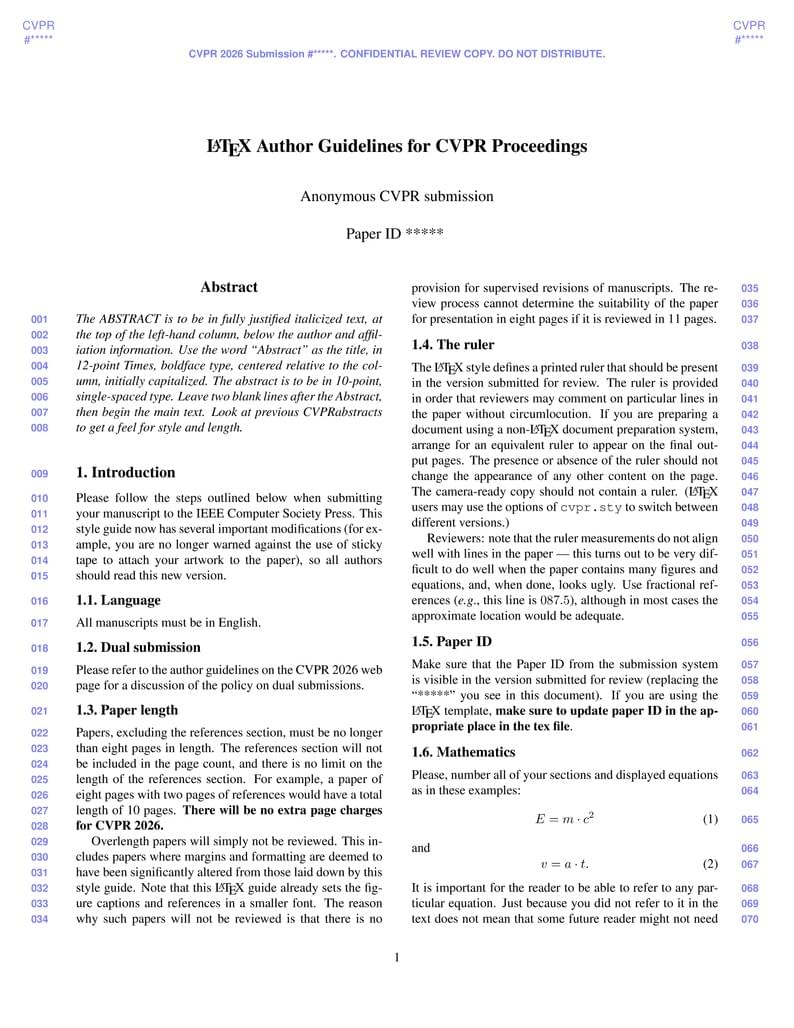
Overleaf copy of the CVPR Submission template. from the official repository github.com/cvpr-org/author-kit and author guidelines
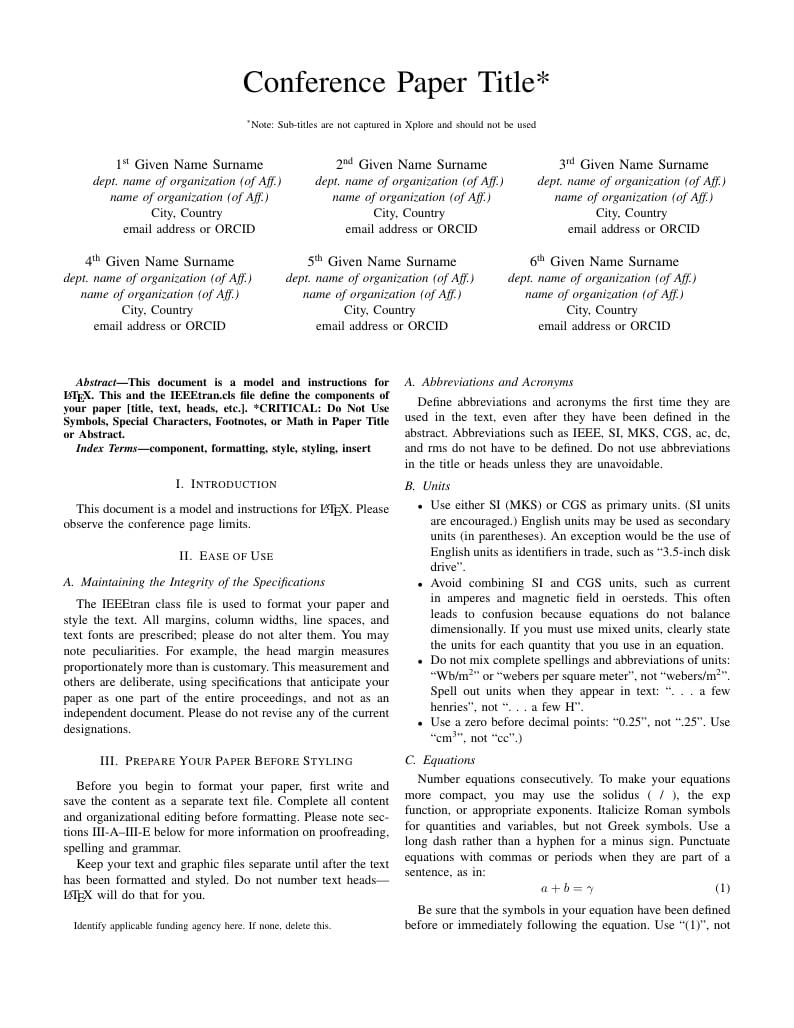
This demo file is intended to serve as a "starter file'' for IEEE conference papers produced under LaTeX. This is one of a number of templates using the IEEE style that are available on Overleaf to help you get started - use the tags below to find more.
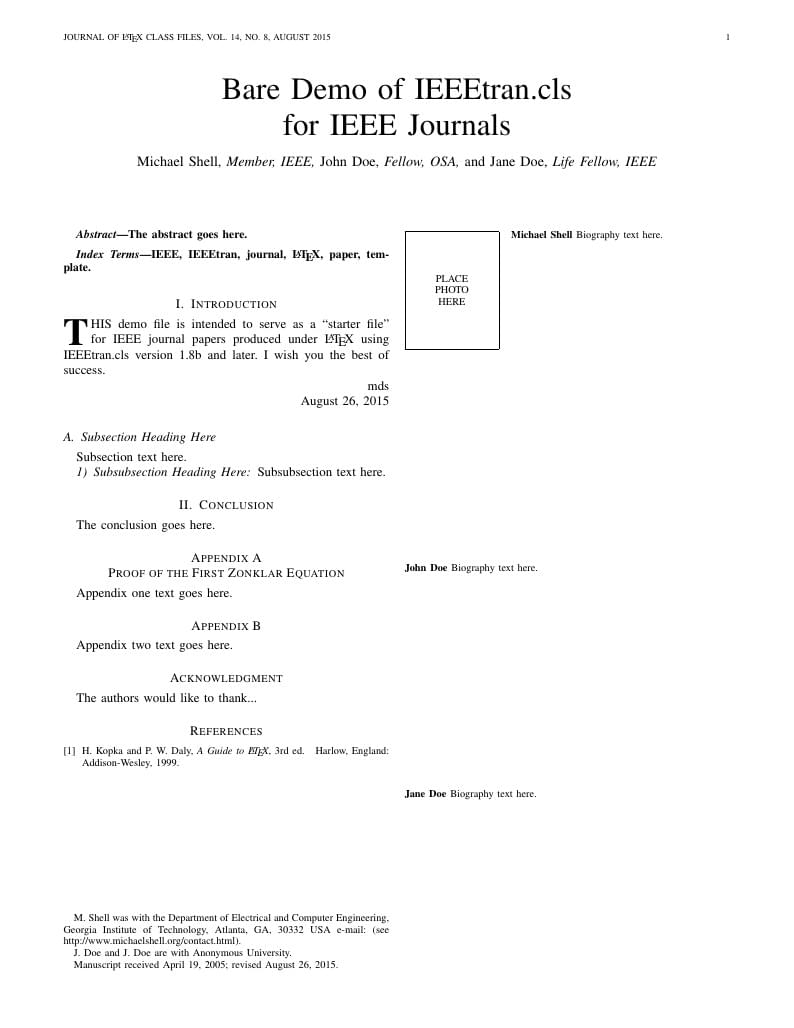
This is a skeleton file demonstrating the use of IEEEtran.cls with an IEEE journal paper. To start writing your manuscript in Overleaf, simply click the 'Open as template' button above. Additional IEEE templates are also available - please use the tags below to view. These include: additional article templates for specific journals (e.g. IEEE Photonics), templates for conference papers, and user-submitted examples and adaptations.
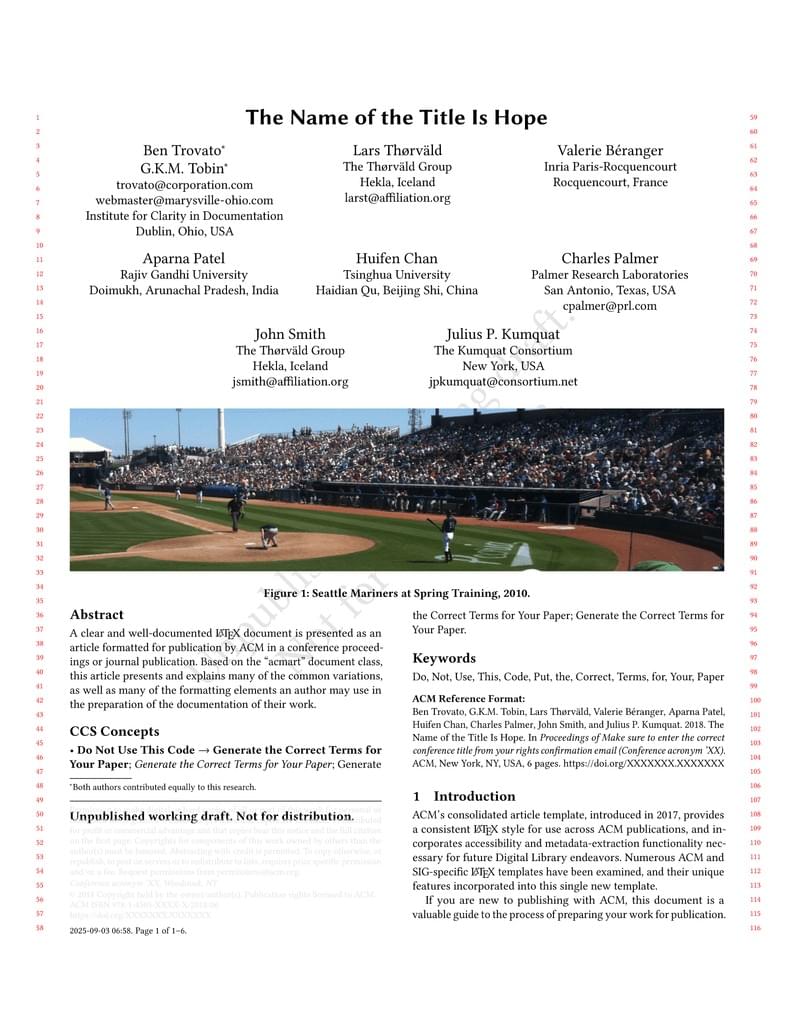
ACM has transitioned to a new authoring template. This new TeX template (acmart v2.16) consolidates the previous eight individual ACM journal and proceedings templates. The templates are updated to the latest software versions, developed to enable accessibility features, and they use a new font set. The new LaTeX package incorporates updated versions of the following ACM templates: ACM Journals: ACM Small, ACM Large, ACM and TOG (also for SIGGRAPH authors publishing in TOG) ACM proceedings templates: ACM Standard and SIGPLAN All journals use acmsmall with the following exceptions: acmlarge - Large single column format, used for IMWUT, JOCCH, PACMPL, POMACS, TAP, PACMHCI acmtog - Large double column format, used for TOG Note: Most proceedings authors will use the "sigconf" proceedings template. If you are unsure which template variant to use, please request clarification from your event or publication contact. Important information regarding submission versions for review: After finalizing the formatting of your paper you must use the option “manuscript” with \documentclass[manuscript]{acmart} command. This will generate the output in single column review format which is required. Accepted manuscripts will be transformed during production to produce properly formatted output accord to the publication specifications. Authors will be provided the opportunity to review and approve the formatted output before the article is published to the ACM Digital Library. Before using the 2017 ACM consolidated proceedings template, we strongly suggest that you read the TeX User Guide. Authors who plan to use their own packages should read the longer Implementation Guide.
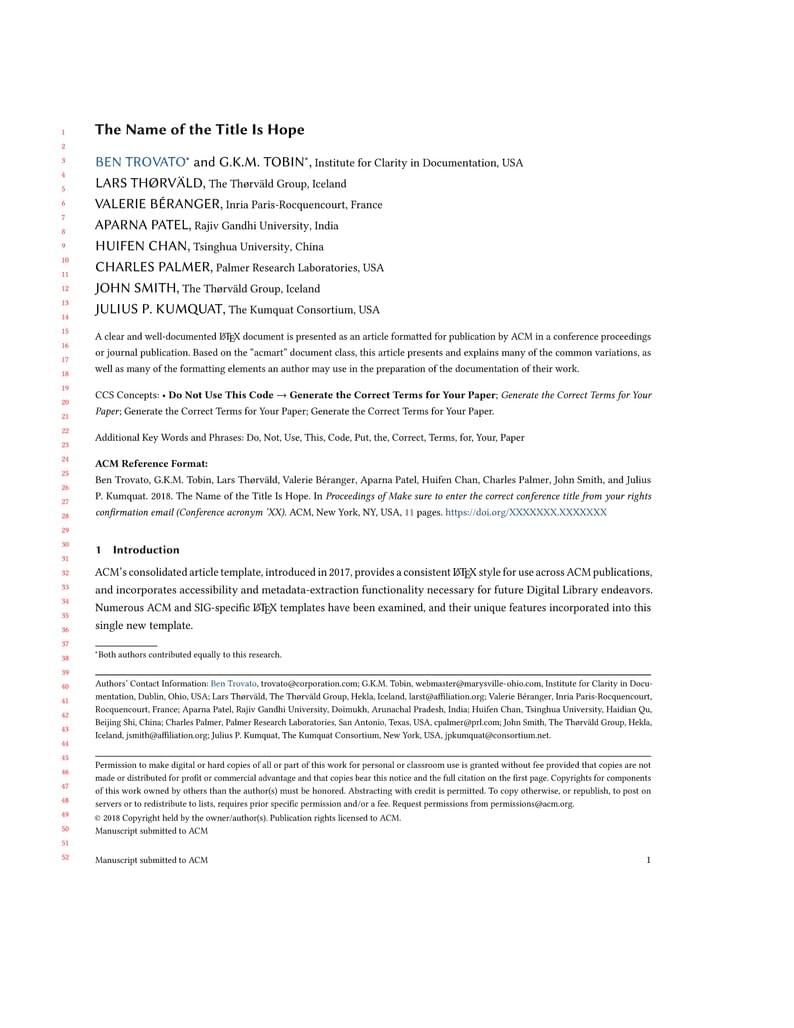
ACM has transitioned to a new authoring template. This new TeX template (acmart v2.16) consolidates the previous eight individual ACM journal and proceedings templates. The templates are updated to the latest software versions, developed to enable accessibility features, and they use a new font set. The new LaTeX package incorporates updated versions of the following ACM templates: ACM Journals: ACM Small, ACM Large, ACM and TOG (also for SIGGRAPH authors publishing in TOG) ACM proceedings templates: ACM Standard and SIGPLAN All journals use acmsmall with the following exceptions: acmlarge - Large single column format, used for IMWUT, JOCCH, PACMPL, POMACS, TAP, PACMHCI acmtog - Large double column format, used for TOG Note: Most proceedings authors will use the "sigconf" proceedings template. If you are unsure which template variant to use, please request clarification from your event or publication contact. Important information regarding submission versions for review: After finalizing the formatting of your paper you must use the option “manuscript” with \documentclass[manuscript]{acmart} command. This will generate the output in single column review format which is required. Accepted manuscripts will be transformed during production to produce properly formatted output accord to the publication specifications. Authors will be provided the opportunity to review and approve the formatted output before the article is published to the ACM Digital Library. Before using the 2017 ACM consolidated article template, we strongly suggest that you read the TeX User Guide. Authors who plan to use their own packages should read the longer Implementation Guide. More detailed Instructions for Authors are found at http://www.acm.org/publications/authors/information-for-authors. It is important to provide the proper indexing information from the ACM Computing Classification System (CCS). Accurate semantic tagging provides a reader with quick content reference; facilitates the DL search for related literature; enables several DL topic functions such as aggregated SIG and journal coverage areas; and helps ACM promote your work in other online resources. Once your article is complete, you can use the “Submit to ACM” button at the top of the Overleaf editor bar to quickly download your paper and go straight to the appropriate ACM submission site. For conference proceedings submissions, please refer to the submission guidelines in the relevant call-for-papers or on the event website. For support on using these templates, or on LaTeX in general, please contact the Overleaf team -- we're happy to help.
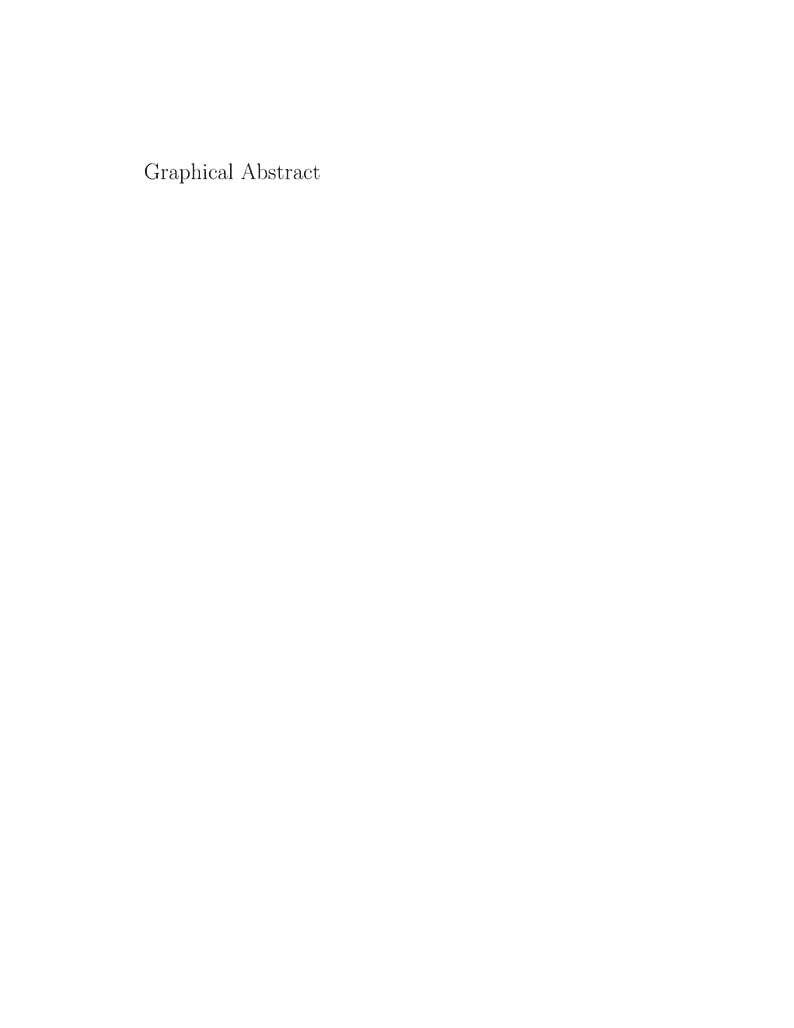
Template for submissions to Elsevier journals using the elsarticle.cls (v3.4c) document class. Please use and set your project's main document to one of the following, depending on the citation scheme you need: elsarticle-template-num.tex, template file for numerical citations elsarticle-template-harv.tex, template file for name-year citations elsarticle-template-num-names.tex, template file for numerical citations + new natbib option. Eg. Jones et al. [21]
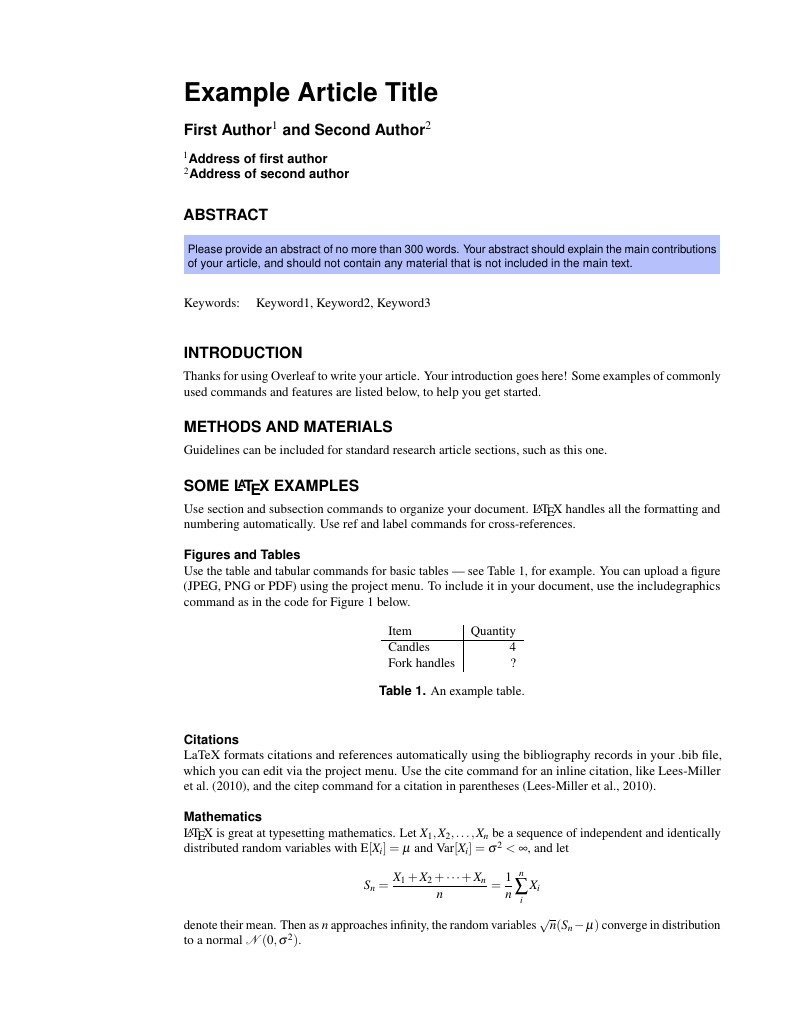
This is a basic journal article template which includes metadata fields for multiple authors, affiliations and keywords. It is also set up to use the lineno package for line numbers; these can be turned on by adding the 'lineno' option to the documentclass command.
FAQ & Help
Who should I contact if I have questions about Overleaf?
Please use our contact form and we'll make sure your question gets to the right person in our team.
Who should I contact if I would like to see my department included in the Queen Mary University of London Overleaf subscription?
If your school or department wish to upgrade to Professional accounts, please contact its-research-consultants@qmul.ac.uk.
Where can I find additional IEEE templates in Overleaf?
The official IEEE templates available in the Overleaf Gallery can be found here: https://www.overleaf.com/gallery/tagged/ieee-official.
I'm new to Overleaf, how should I get started?
We've put together a short How do I use Overleaf help page to give you pointers on exactly that :)
How do I upload an existing LaTeX project into Overleaf?
Here's an FAQ on how to import existing LaTeX documents into Overleaf.
What packages does Overleaf support?
Overleaf supports the packages listed here.